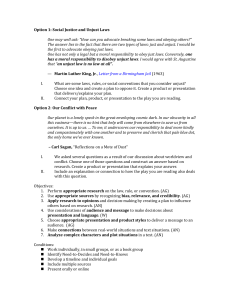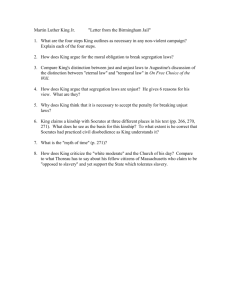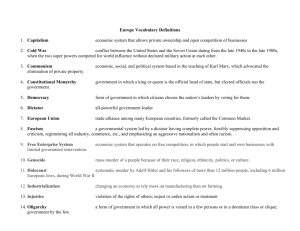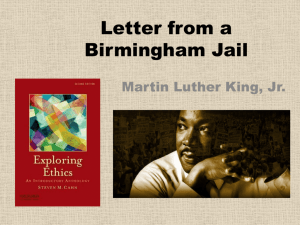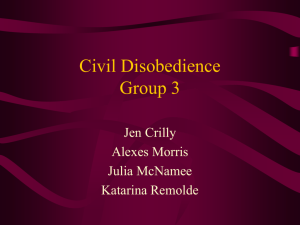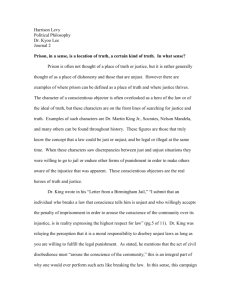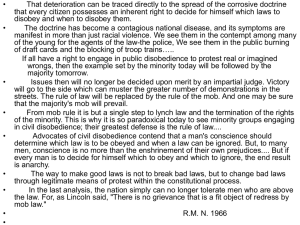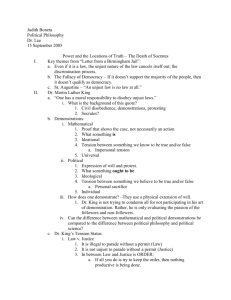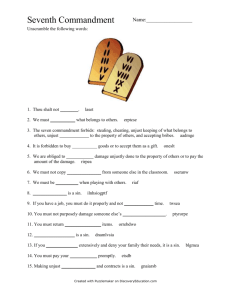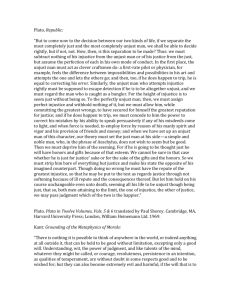Let us consider a more concrete example of just and unjust laws. An
advertisement
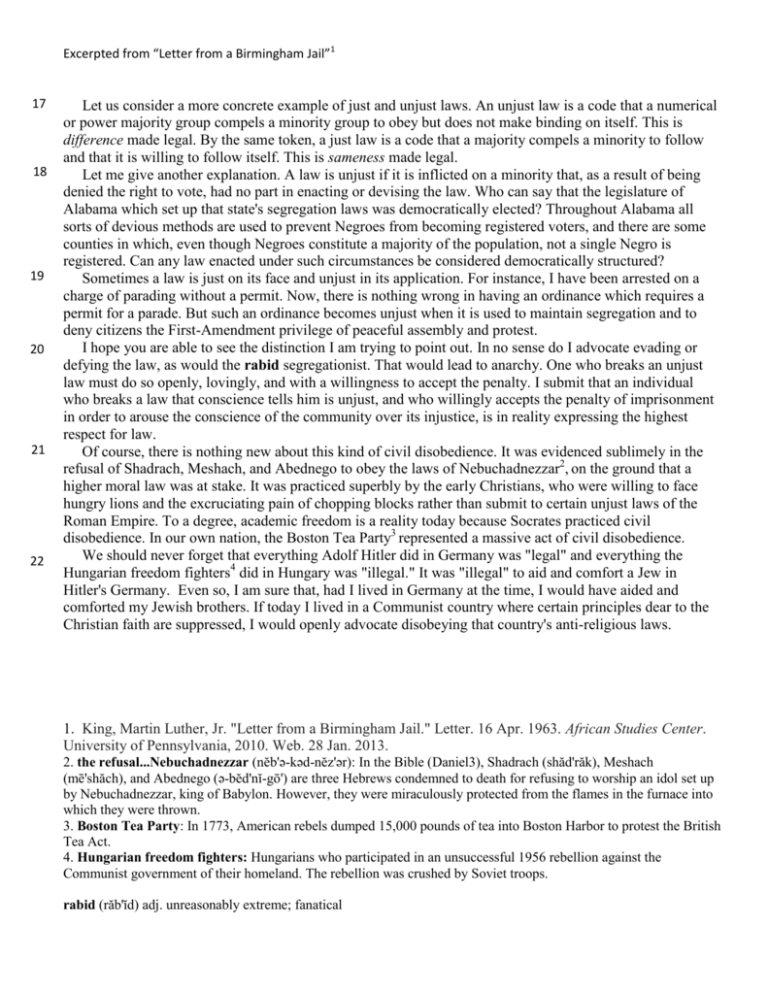
Excerpted from “Letter from a Birmingham Jail”1 17 18 19 20 21 22 Let us consider a more concrete example of just and unjust laws. An unjust law is a code that a numerical or power majority group compels a minority group to obey but does not make binding on itself. This is difference made legal. By the same token, a just law is a code that a majority compels a minority to follow and that it is willing to follow itself. This is sameness made legal. Let me give another explanation. A law is unjust if it is inflicted on a minority that, as a result of being denied the right to vote, had no part in enacting or devising the law. Who can say that the legislature of Alabama which set up that state's segregation laws was democratically elected? Throughout Alabama all sorts of devious methods are used to prevent Negroes from becoming registered voters, and there are some counties in which, even though Negroes constitute a majority of the population, not a single Negro is registered. Can any law enacted under such circumstances be considered democratically structured? Sometimes a law is just on its face and unjust in its application. For instance, I have been arrested on a charge of parading without a permit. Now, there is nothing wrong in having an ordinance which requires a permit for a parade. But such an ordinance becomes unjust when it is used to maintain segregation and to deny citizens the First-Amendment privilege of peaceful assembly and protest. I hope you are able to see the distinction I am trying to point out. In no sense do I advocate evading or defying the law, as would the rabid segregationist. That would lead to anarchy. One who breaks an unjust law must do so openly, lovingly, and with a willingness to accept the penalty. I submit that an individual who breaks a law that conscience tells him is unjust, and who willingly accepts the penalty of imprisonment in order to arouse the conscience of the community over its injustice, is in reality expressing the highest respect for law. Of course, there is nothing new about this kind of civil disobedience. It was evidenced sublimely in the refusal of Shadrach, Meshach, and Abednego to obey the laws of Nebuchadnezzar2, on the ground that a higher moral law was at stake. It was practiced superbly by the early Christians, who were willing to face hungry lions and the excruciating pain of chopping blocks rather than submit to certain unjust laws of the Roman Empire. To a degree, academic freedom is a reality today because Socrates practiced civil disobedience. In our own nation, the Boston Tea Party3 represented a massive act of civil disobedience. We should never forget that everything Adolf Hitler did in Germany was "legal" and everything the Hungarian freedom fighters4 did in Hungary was "illegal." It was "illegal" to aid and comfort a Jew in Hitler's Germany. Even so, I am sure that, had I lived in Germany at the time, I would have aided and comforted my Jewish brothers. If today I lived in a Communist country where certain principles dear to the Christian faith are suppressed, I would openly advocate disobeying that country's anti-religious laws. 1. King, Martin Luther, Jr. "Letter from a Birmingham Jail." Letter. 16 Apr. 1963. African Studies Center. University of Pennsylvania, 2010. Web. 28 Jan. 2013. 2. the refusal...Nebuchadnezzar (nĕb'ə-kəd-nĕz'ər): In the Bible (Daniel3), Shadrach (shăd'răk), Meshach (mē'shăch), and Abednego (ə-bĕd'nĭ-gō') are three Hebrews condemned to death for refusing to worship an idol set up by Nebuchadnezzar, king of Babylon. However, they were miraculously protected from the flames in the furnace into which they were thrown. 3. Boston Tea Party: In 1773, American rebels dumped 15,000 pounds of tea into Boston Harbor to protest the British Tea Act. 4. Hungarian freedom fighters: Hungarians who participated in an unsuccessful 1956 rebellion against the Communist government of their homeland. The rebellion was crushed by Soviet troops. rabid (răb'ĭd) adj. unreasonably extreme; fanatical
